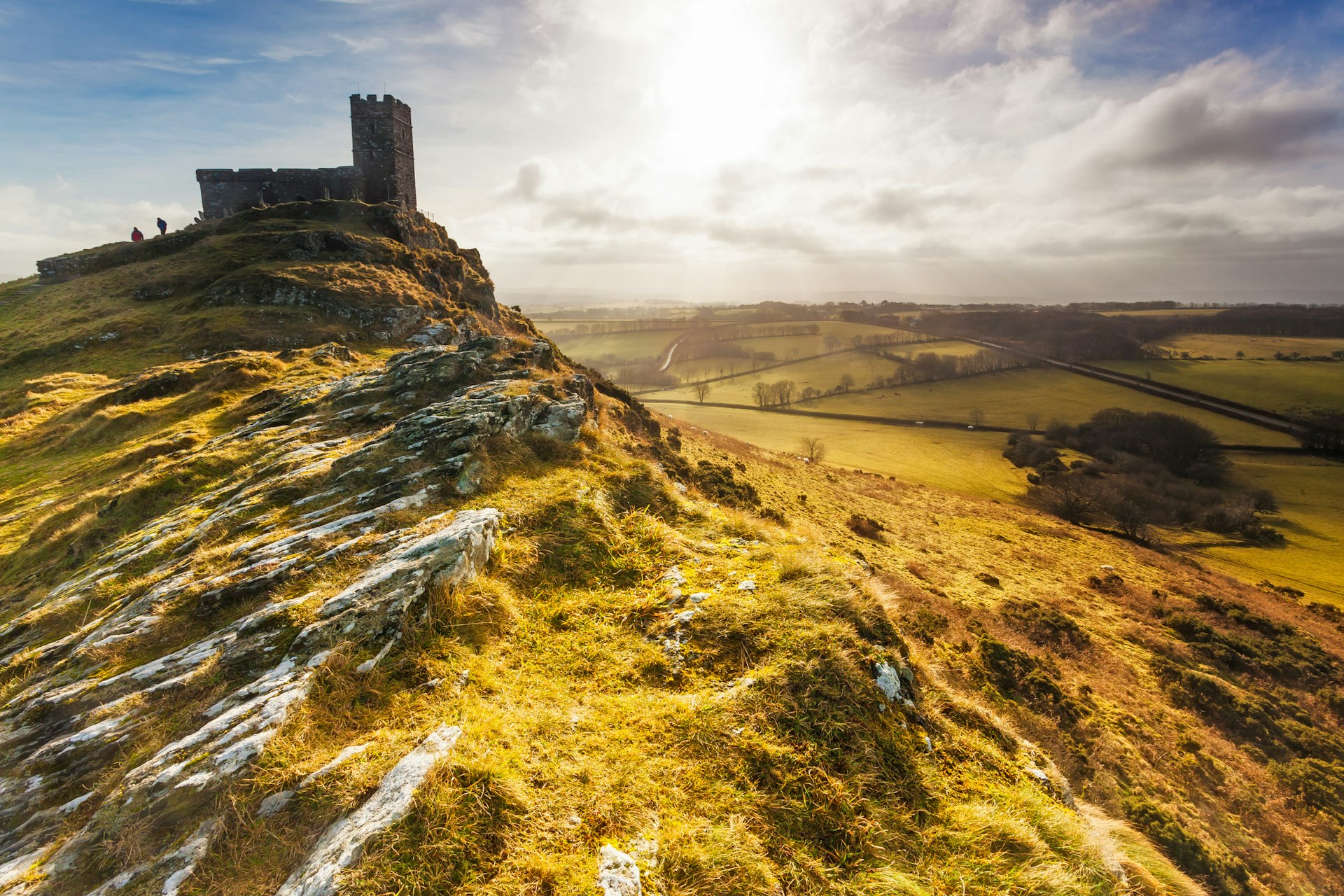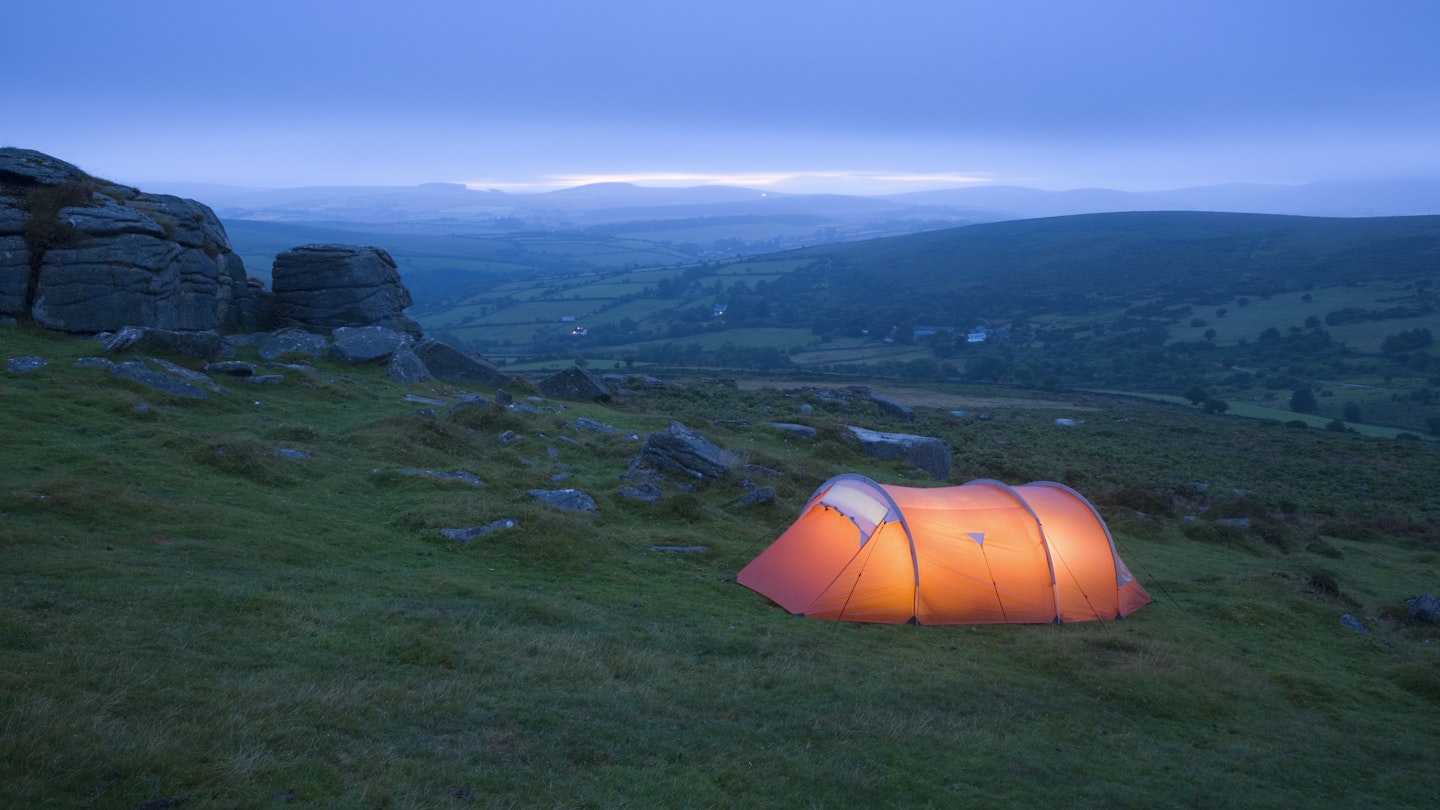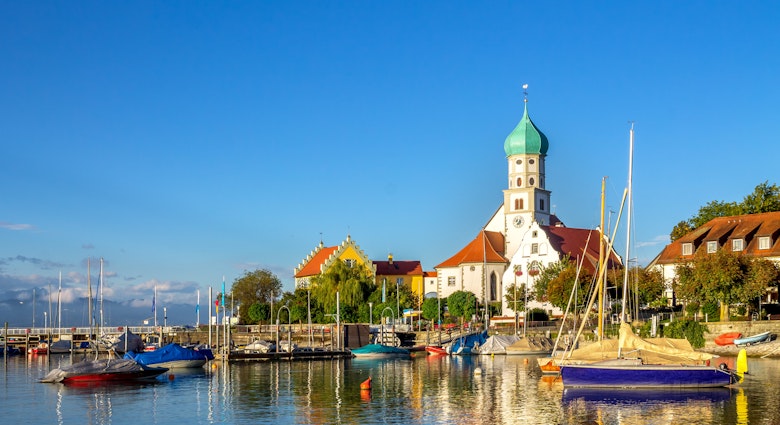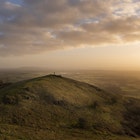According to a local legend, when a wealthy businessman sought to make a profit by farming on Dartmoor, Old Crockern – the mythological protector of the moors – cursed the venture and drove the man away.
That same spirit may have ridden again this week: on Monday, July 31, campaigners won a months-long legal battle to regain the right to wild camp in the national park.
Until recently, the right to freely camp in Dartmoor National Park in Devon without seeking the landowner’s permission was assumed to be protected by a local bylaw – making Dartmoor the only place in England where this remained legal. That right was overturned earlier this year when Alexander Darwall, a hedge-fund manager and Dartmoor’s sixth-largest landowner, won a court case against the Dartmoor National Park Authority (DNPA) in which he argued the right had never existed.
The ruling on January 13, 2023 sparked one of the UK’s largest-ever countryside-access protests, with over 3000 people taking to the moors – the more spiritual among them hoping to invoke Old Crockern in their fight against Darwall. Shortly afterward, the DNPA agreed to appeal, assisted by the Open Spaces Society, whose legal team worked pro bono.
This week, they won a unanimous verdict from the three judges who heard the case.

Dartmoor: England’s wild-camping holdout
Dartmoor’s windswept landscapes may feel like a vast wilderness, but all land within the national park is privately owned. Nonetheless, visitors have long enjoyed the right to explore (almost) freely across the park. The Dartmoor Commons Act 1985 was passed to protect the historic custom of access “to all the commons on foot and on horseback for the purposes of open-air recreation.”
For decades, authorities have construed “open-air recreation” to include wild camping. The DNPA outlined a map of permitted wild-camping areas on Dartmoor, as well as a strict Code of Conduct for campers.
Darwall and his supporters claimed that many visitors did not follow these rules, as they damaged estates and caused problems to livestock and the environment. But campaigner and camping expert Tom Sigler told us wild camping “has been enjoyed responsibly by generations who understand leave-no-trace principles.”
Dartmoor’s wild-camping ban
At a two-day hearing in December 2022, Darwall argued that wild camping was not covered within the Commons Act. On January 13, 2023, Judge Sir Julian Flaux ruled in the landowner’s favor, stating that the Commons Act did not “confer on the public any right to pitch tents or otherwise make camp overnight on Dartmoor Commons.”
On January 21, more than 3000 people attended a protest march on Darwall’s estate organized by campaign groups The Stars Are for Everyone and Right to Roam. A week later, the DNPA announced plans to appeal the ruling.

The ban is overturned
On July 31, 2023, three judges who heard the case at the Court of Appeal on July 18 ruled unanimously to overturn the January ruling.
The critical point of the case was whether or not wild camping counted as open-air recreation. Pamela Woods, chair of the DNPA, said the authority “firmly believed” that the Commons Act “allowed for backpack camping on certain areas of common land as a form of open-air recreation without the need to get landowners permission first.”
All three judges at the appeal hearing agreed. Speaking at the court ruling on Monday, Master of the Rolls and Head of Civil Justice Sir Geoffrey Vos said, “The fact that a tent is closed rather than open cannot convert the wild camping from being an open-air recreation into not being one,” concluding that open-air recreation therefore “does allow members of the public to rest and sleep, whether by day or by night, whether on the ground or in a tent.”
Kate Ashbrook, Open Spaces Society’s general secretary, called it “an excellent outcome,” adding, “We are relieved that the judges ruled unanimously and conclusively that open-air recreation includes backpack camping on the commons.”
A spokesperson for the Darwall family said they were “disappointed” by the judgment. “Our mission was to conserve this special place,” the family said. “It is regrettable that our role as custodians is greatly diminished.”

The decline of “right to roam” in England
The protests and campaigns following Darwall’s court case weren’t just about the loss of England’s last legal wild-camping spot. For many, the recent Dartmoor debate has been a starting point for discussions around the reduction of Britain’s “rights to roam” in general.
The Right to Roam campaign points out that the public is currently banned in 92% of England’s countryside and 97% of its rivers.
The group is calling for legislation similar to that in Scotland, where the Land Reform (Scotland) Act 2003 established the right to responsible public access to most land for open-air recreation. They aren’t the only ones: British Canoeing, Ramblers, the British Mountaineering Council, the Campaign for National Parks and the Open Spaces Society all spoke out against the wild-camping ban on Dartmoor, calling instead for even more public access to nature.
“My hope is this whole saga acts as the catalyst we need to introduce responsible, legal, wild camping into other national parks in England and Wales,” said Tom Sigler. His thoughts are echoed by many others, including the British Mountaineering Council, which is calling for wild camping to be permitted on open-access land across several different national parks for a trial period of 12 months.
With the “right to roam” movement gaining traction across England, campaigners may now be thanking Darwall for bringing it back into the spotlight.
What can wild campers expect in Dartmoor now?
For travelers to Dartmoor, things are more or less as they were before the Darwall case. Wild (or backpack) camping is once again permitted in most of the national park – provided you adhere to the Code of Conduct.
You must carry your own equipment as part of your walk and stay no more than two nights. Check the DNPA’s camping map for permitted areas, and remember to follow “leave no trace” principles. It’s vital that travelers work together to protect the fragile nature that makes Dartmoor so special and preserve it for future generations.












